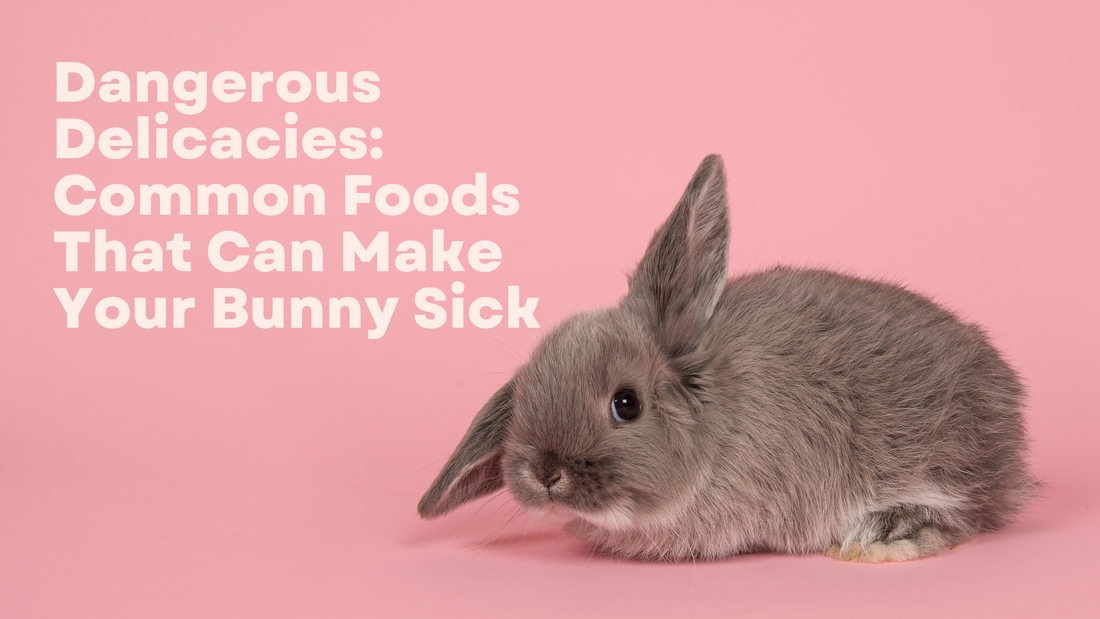
Dangerous Delicacies: Common Foods That Can Make Your Bunny Sick
Share
Rabbits are herbivores and have a delicate digestive system. They require a specific diet to maintain their health and well-being. While many foods are safe for rabbits to eat, there are some that can be harmful or even fatal. Here's a list of foods that rabbits should avoid:
-
Chocolate: Chocolate contains a compound called theobromine, which is toxic to rabbits. Even a small amount of chocolate can cause digestive upset or death.
-
Avocado: Avocado contains a toxin called persin, which is harmful to rabbits. It can cause digestive upset, respiratory distress, and heart failure.
-
Onions and Garlic: Onions and garlic contain compounds that can damage a rabbit's red blood cells, leading to anemia. They can also cause digestive upset and diarrhea.
-
Rhubarb: Rhubarb contains a compound called oxalic acid, which can cause kidney damage and digestive upset in rabbits.
-
Nuts and Seeds: Nuts and seeds can be high in fat and can cause digestive upset, diarrhea, or even liver damage in rabbits if given in large quantities.
-
Dairy Products: Rabbits are lactose intolerant and cannot digest dairy products properly. Feeding rabbits dairy products can cause digestive upset and diarrhea.
-
Bread and Pasta: Bread and pasta are low in fiber and can cause digestive issues if fed to rabbits regularly.
-
Meat: Rabbits are herbivores and cannot digest meat properly. Feeding them meat can cause digestive upset and other health issues.
-
Sugary and Processed Foods: Sugary and processed foods are not part of a rabbit's natural diet and can cause digestive upset, obesity, and other health issues.
In conclusion, rabbits require a specific diet to maintain their health and well-being. While many foods are safe for rabbits to eat, there are some that should be avoided. As a rabbit owner, it's important to provide your pet with a balanced diet that includes hay, fresh vegetables, and a limited amount of pellets. If you have any questions or concerns about your rabbit's diet, consult with a veterinarian who specializes in rabbit care.
